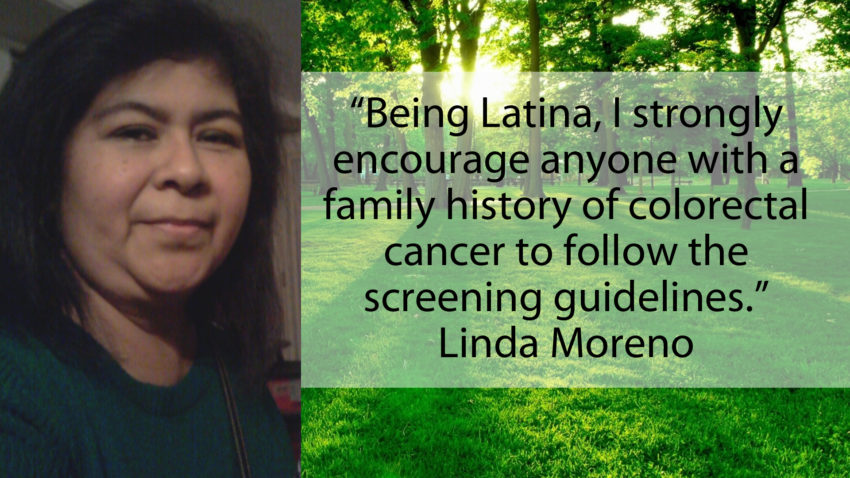
Share On Social!
Linda Moreno and her San Antonio family provide a powerful example of the importance of family history and getting screened for colorectal cancer.
One of six children, Moreno has a family history of diabetes, high blood pressure, rheumatoid arthritis, stomach and thyroid cancer.
But she had no family history of colorectal cancer.
After two of her siblings were suddenly diagnosed with colorectal cancer within two months of each other, Moreno and her three other siblings rushed to get themselves screened.
“It was a shock to see my brother and sister diagnosed with colorectal cancer,” Moreno said. “I had my first screening colonoscopy at the age of 33 due to my family history. They found and removed two polyps.”
Moreno, a mother of two, is now diligent in keeping a record of the medical history of her and her husband’s side of the family with the hope that her children will also follow the recommended screening guidelines once they are of age.
“Being Latina, I strongly encourage anyone with a family history of colorectal cancer to follow the screening guidelines,” she said.
“When you have a family history of cancer, it doesn’t matter what age you are – you need to get checked.”
Editor’s Note: For Colorectal Cancer Awareness Month in March, this is the story of a Latino survivor from the Cancer Therapy & Research Center (CTRC) and the Institute for Health Promotion Research (IHPR) at UT Health San Antonio, as part of the National Cancer Institute’s “Screen to Save” Colorectal Cancer Outreach & Screening Initiative.
Explore More:
AccessBy The Numbers
25.1
percent
of Latinos remain without health insurance coverage



